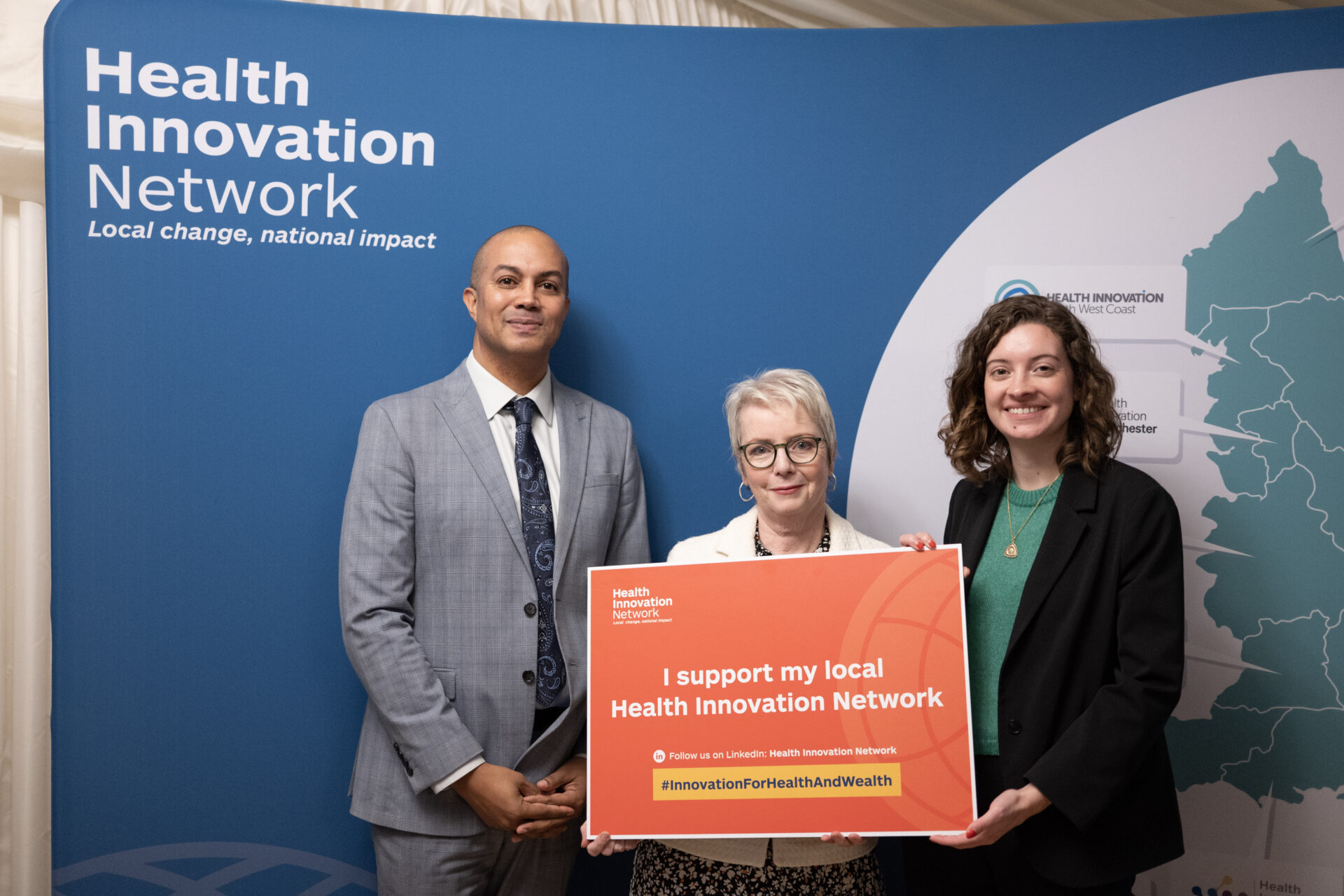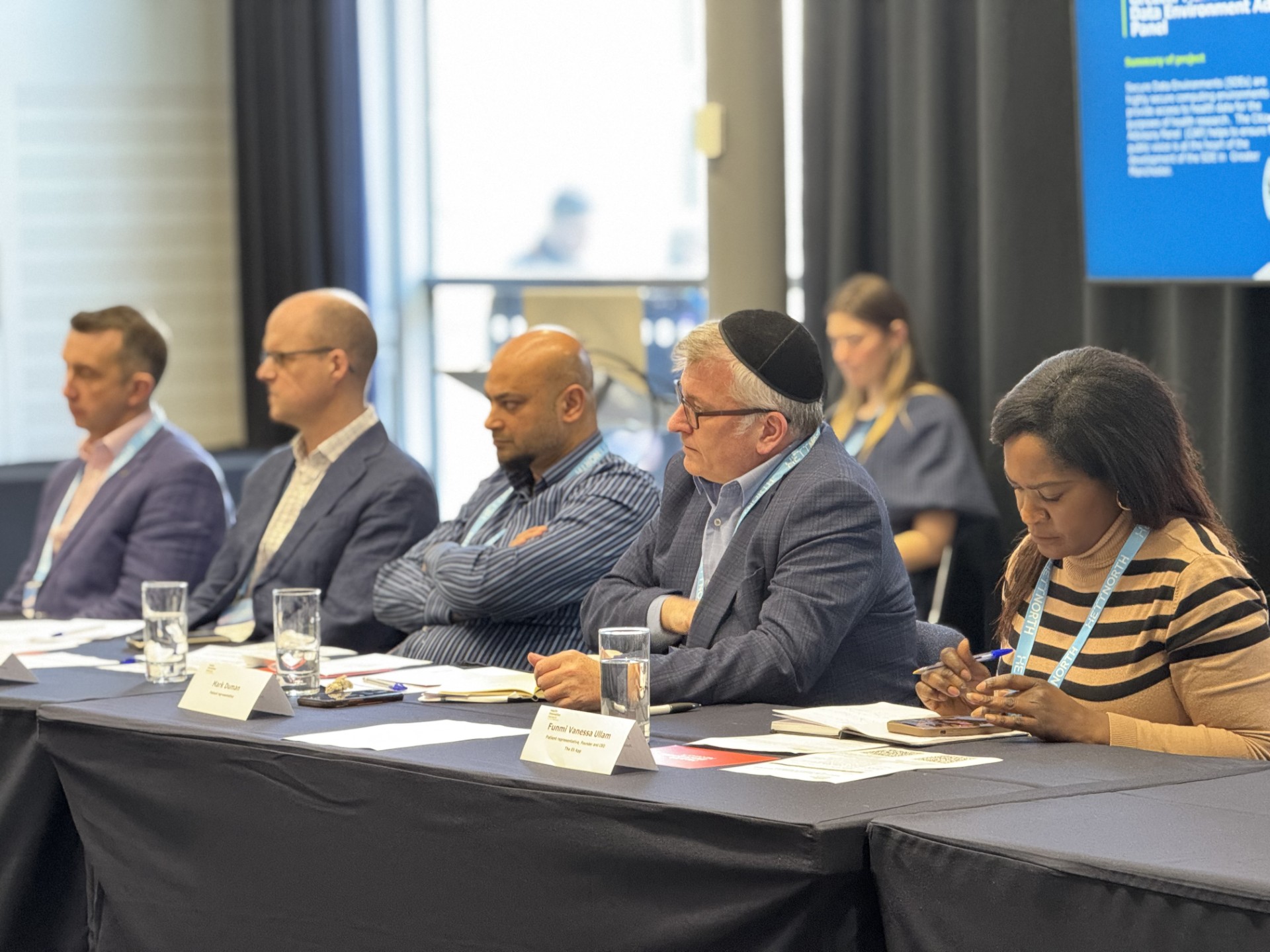The AHSN Network 2020-2021 Impact Report highlights how the innovation delivery arm of the NHS has benefitted more than 258,000 patients through its national programmes during the coronavirus (COVID-19) pandemic.
The report highlights outstanding impacts achieved by AHSNs and evidences how they are driving adoption and spread in healthcare innovation, transforming patient outcomes, enabling efficiencies, saving the NHS money, generating economic growth and attracting millions of pounds of investment for the country’s economy.
The report also details how AHSNs mobilised quickly during the coronavirus pandemic to support the NHS and health and social care response.
National adoption and spread programmes
The AHSNs delivered seven programmes, developed regionally and selected for national adoption and spread during 2018-20. Since moving on to new programmes of national focus, AHSNs have continued work to ensure partners are equipped to sustain these programmes where they are a priority for regional health and care systems.
In 20-21, we launched our new national adoption and spread programmes focusing on major NHS priorities around mental health and cardiovascular disease. Even within this challenging year, these initiatives have added value and delivered impact for the health and care system on a national scale.
Supporting mental health services
In April 2020, the AHSN Network launched two new national programmes to support mental health services.
The Early Intervention Eating Disorders national programme supports mental health teams across England to speed up the diagnosis and treatment of eating disorders in 16-25 year olds.
The AHSNs started delivering this programme during the pandemic and have still made great progress to support the initiation of the service within mental health trusts across the country – with 22 mental health trusts adopting the model and 264 patients already receiving tailored specialist care. Find out more about the programme and hear from George, who has been supported by the model.
The Focus ADHD national programme supports mental health trusts and community paediatric services across England to improve the assessment process for Attention Deficit Hyperactivity Disorder (ADHD) for children and young people.
During 20-21, 2,339 objective ADHD tests carried out as a result of the new AHSN Focus ADHD programme and 10,000 objective ADHD tests were carried out across all live sites in England.
Improving diagnosis and treatment of Atrial Fibrillation (AF)
In 2018-20 we delivered the AF national programme <link to CASE STUDY NUMBER CS27>, and we’re continuing to measure and monitor the programme as we put foundations in place to support the system to self-sustain. AF is the most common cause of an irregular heart rhythm and the cause of 20% of strokes. It occurs more often in people aged over 65 or with other long-term conditions, and it increases a person’s risk of stroke fivefold. Some people do not experience symptoms, which increases the likelihood of their AF remaining undiagnosed and places them at greatest risk of a stroke.
Results from the last Quality and Outcomes Framework (QOF) in 2019/20 shows that we supported 152,999 patients to get an AF diagnosis, and the programme was adopted by 4,288 GP practices.
Supporting women’s health
The AHSN Network 2018-20 PReCePT <link to CASE STUDY NUMBER CS31> national programme makes magnesium sulphate available to mothers who go into labour at less than 30 weeks in all 152 maternity units in England, to help prevent cerebral palsy (CP).
Every year around 4,000 women in the UK give birth very early because of complications with their pregnancy, and being born too early is the leading cause of CP, which has a lifelong impact on children and families.
From April 2020 to the end of March 2021, an additional 691 mothers received magnesium sulphate – helping to avoid an estimated 18 cases of cerebral palsy.
Reducing medication risks
The AHSN Network 2018-2020 Transfer of Care Around Medicines (TCAM) <link to CASE STUDY NUMBER CS28> national programme supports patients who have been discharged from hospital and are identified as needing extra support with taking their medicines. Working with community pharmacists, the programme aims to reduce risk associated with the transfer of care process. 30-70% of patients experience unintentional changes to their treatment or an error is made because of a miscommunication.
From April 2020 to the end of March 2021, 78,346 TCAM referrals were made.
The AHSN Network 2018-2020 Preventing prescribing errors with PINCER national programme <link to CASE STUDY CS29>, works with primary care pharmacists and pharmacy technicians to identify patients at risk from their medications and then acting to correct the problem.
Over 41% of GP practices in England have adopted the intervention. From April 2020 to the end of March 2021, more than 109,000 patients at risk of hazardous prescribing have been identified.
Supporting patients with osteoarthritis
ESCAPE-pain is a six-week group rehabilitation programme for people with osteoarthritis. Although the pandemic meant venues had to suspend face-to-face classes, AHSNs quickly adapted to support interested sites to deliver the programme virtually. Find out more <link to CASE STUDY CS17>.
Between 2018-20, 12,781 people completed the ESCAPE-pain programme and sites adopting ESCAPE-pain went from 51 to 280.
Improving standards of care for patients undergoing surgery
The Emergency Laparotomy Collaborative national programme worked to improve standards of care for patients undergoing emergency laparotomy surgery.
97% of eligible sites have adopted the pathway with 19,932 patients benefiting from April 2020 to the end of March 2021.
Read the impact report.

The Health Innovation Network is delighted to announce the launch of Innovation Insights, a brand-new webinar series designed to highlight the latest in health innovation, offering attendees valuable insights into the adoption and spread of innovation within the health and care landscape. Each interactive webinar will feature: Expert presentations: Delivered by thought leaders across [...]

The Health Innovation Network, at an event sponsored by Sarah Coombes MP, brought together parliamentarians including Health Minister Karin Smyth MP and Chair of the Science, Innovation and Technology Committee, Chi Onwurah MP to meet with six innovators supported by health innovation networks across the country and their NHS partners. At the Meet the Innovators: [...]

The need for fast-paced innovation in healthcare is widely acknowledged. And ensuring that healthcare innovation is shaped by the people it serves remains a pressing priority – one made all the more evident by the growing emphasis on health equity in the 10 Year Health Plan. Patient voices are often cited as central to healthcare [...]








